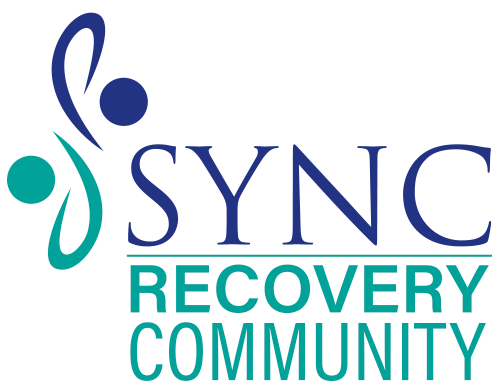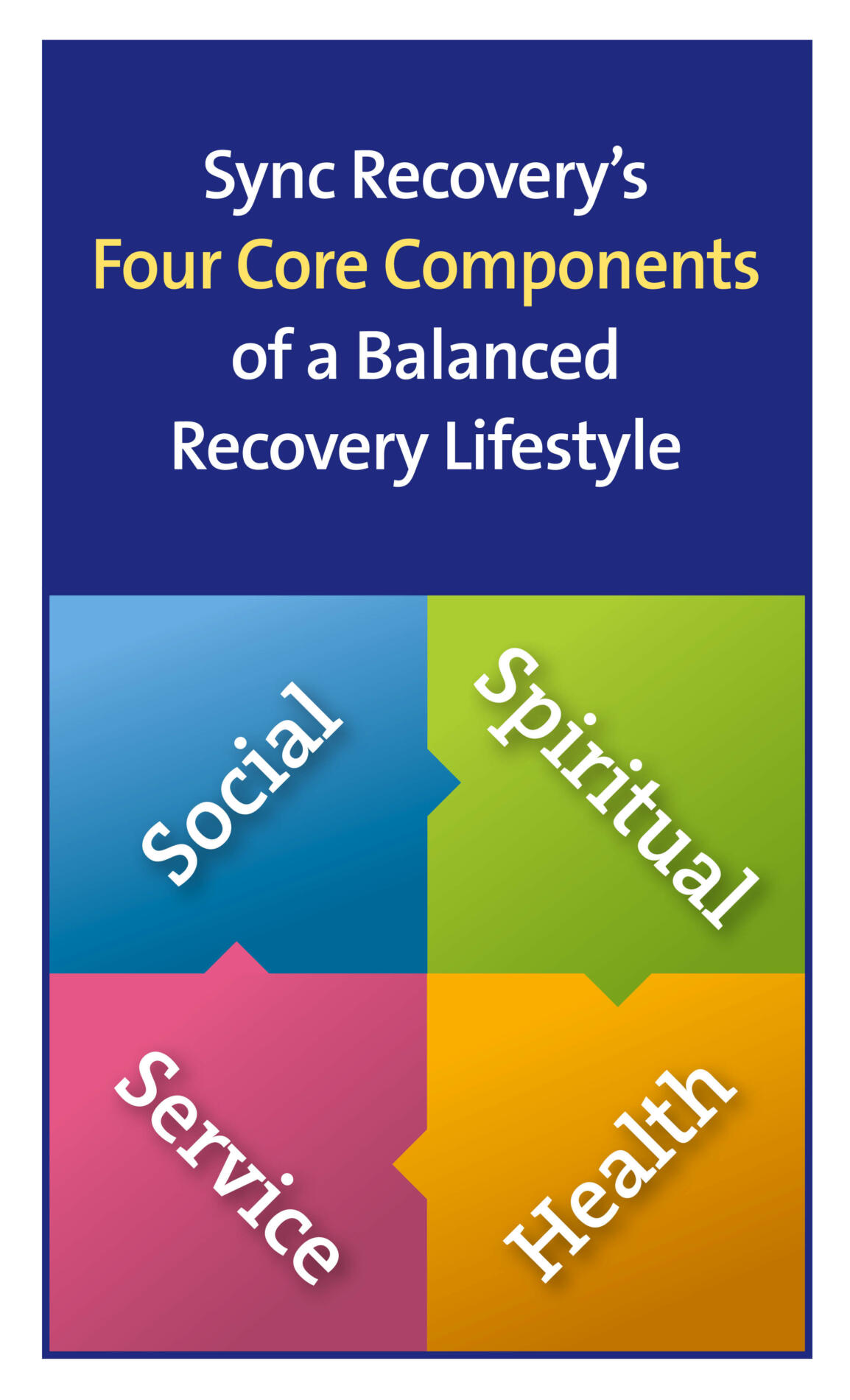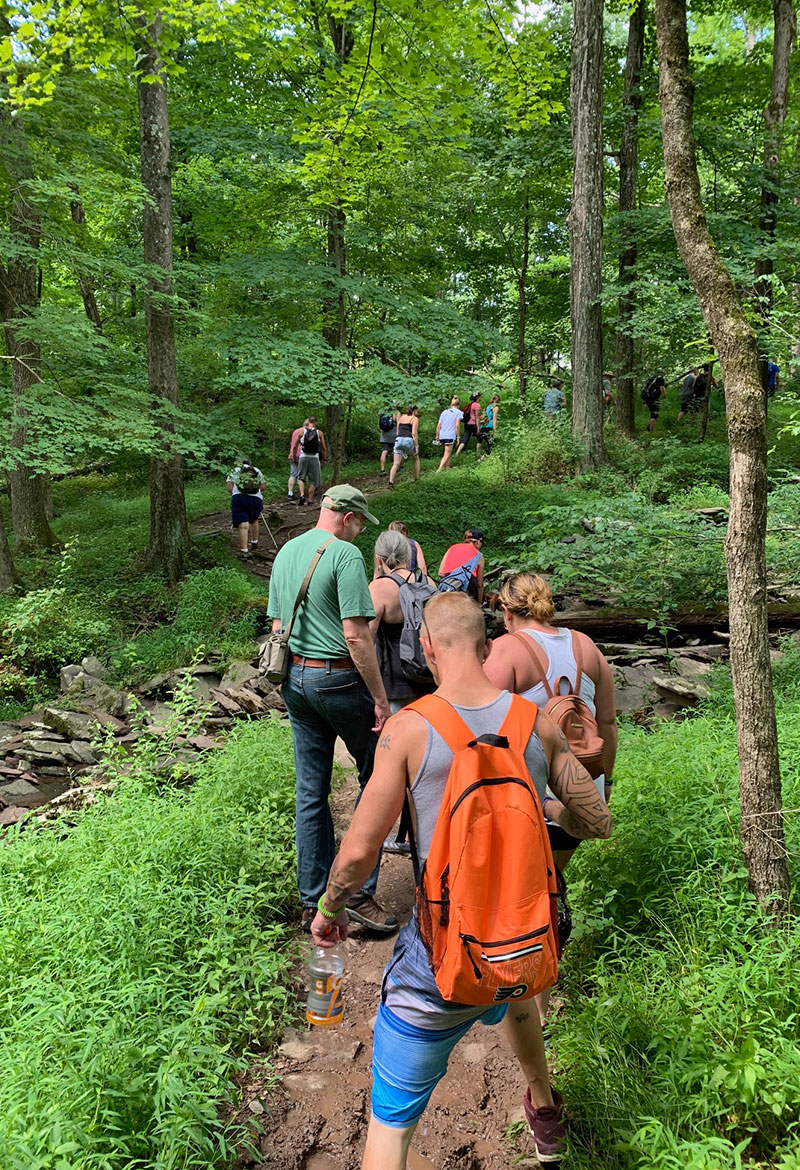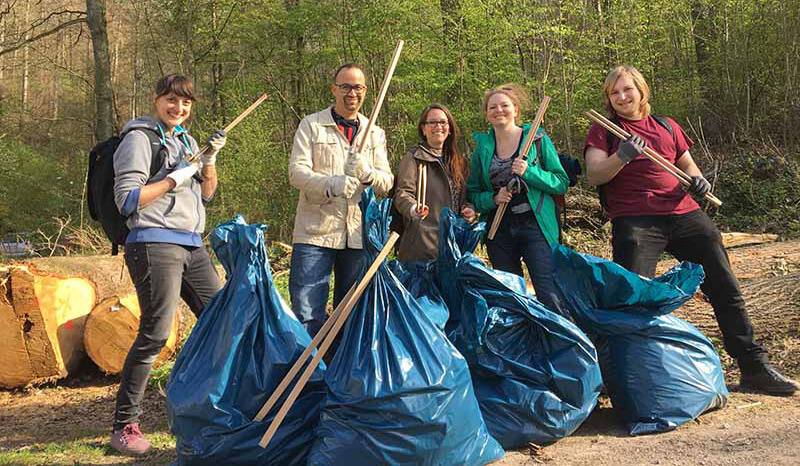Four Core Components
of a Balanced Recovery Lifestyle
Recovery from substance use is much more than relapse prevention. It is a holistic process in which participants reclaim a meaningful life in the face of all the hardships he or she has experienced. Critical needs are met with treatment and other care providers. Sync Recovery Community reinforces the importance of social connectedness, spiritual principles, health and wellness practices, and service work. These are evidence-based modalities encouraged to maintain long term sobriety. SRC’s 4 core components are broad enough to individualize and create multiple pathways in which our participants will cultivate a balanced and rewarding lifestyle of recovery.
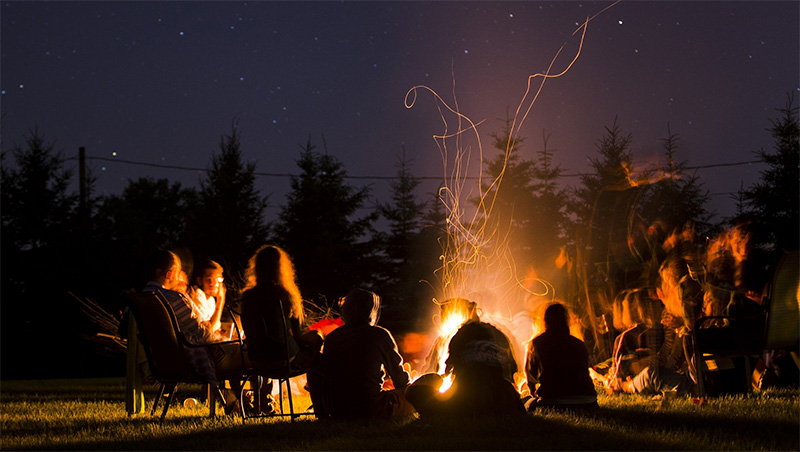
Social Connections
SRC events build friendships, create meaningful opportunities to have fun in recovery, and help to rebuild the social network lost from having to disassociate from unhealthy relationships. This is where one tried and true component of substance use treatment – a strong social support system – can bolster long-term recovery. A social network can keep people in recovery invested in their program even if they lose motivation, get discouraged, or become complacent or over-confident. Our survey for the Rally in the Valley event asked the question, “What was your favorite part of the day?” Despite all the bells and whistles of the day, the majority answered, “being with people in recovery.”
Research suggests that social relationships provide emotional support, a sense of belonging, and stress relief. While higher levels of social connection improve quality of life, lower levels have been linked to relapse.
David Sack, MD
Health and Wellness
SRC events involve physical activity and whole health awareness. There are multiple studies and articles written about the importance of being in nature, exercise and nutrition to help maintain a lasting recovery lifestyle.
Benefits of outdoor recreation include reduced stress levels, increased attention span, improved relaxation, decreased anxiety, reduced blood pressure, and decreased risk of depression. Aside from the almost instant feeling of calm and contentment that accompanies time outdoors, hiking in nature can reduce rumination. Many of us often find ourselves consumed by negative thoughts, which takes us out of the enjoyment of the moment at best and leads us down a path to depression and anxiety at worst. But a recent study published in Proceedings of the National Academy of Sciences found that spending time in nature decreases these obsessive, negative thoughts by a significant margin.
Exercise contributes to noticeable improvements in self-esteem and increased dedication to recovery. Studies on people with substance use conditions in Denmark found that regular exercise improved energy, body image, and quality of life for most people in the study and, for nearly half of them, helped end or reduce their substance use. “For a while there was only psychotherapy and medications. More recently the benefit of exercise has become apparent, so a lot of practitioners have started using these approaches together,” says Anthony Kouri, an orthopedic surgeon at the University of Toledo Medical Center in Ohio. “It helps people fill their time, release endorphins, and feel naturally good instead of the synthetic feeling of using drugs.”
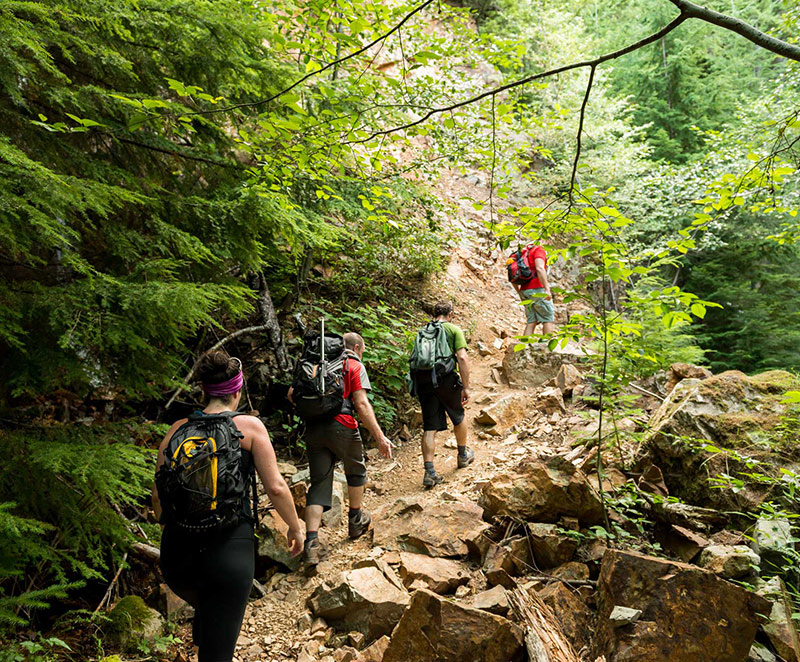
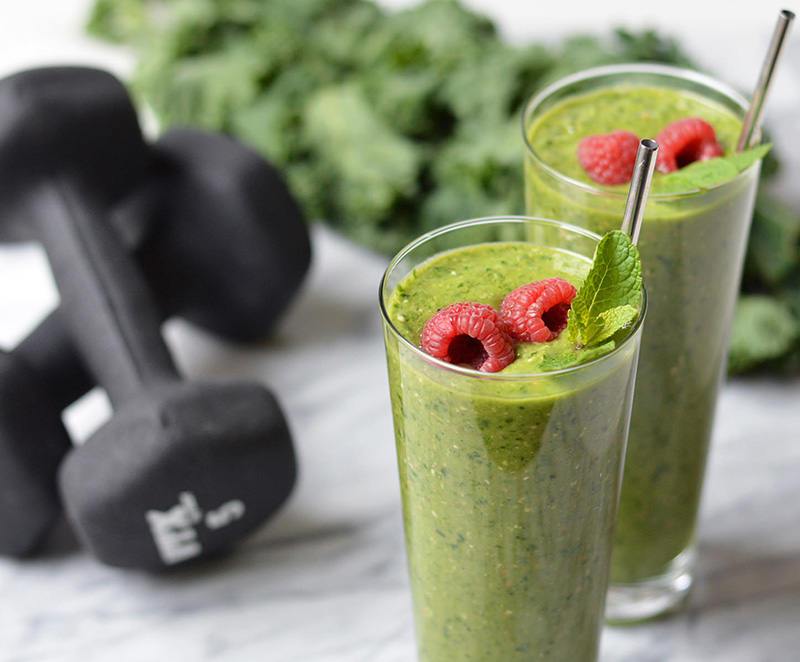
With substance use disorder rates, there is an urgent need for new and effective treatment modalities. The utilization of nutrition services in addiction treatment has not been standardized, but there is a growing trend toward incorporating nutrition into the treatment plan. Nutrition therapy should address the most serious medical and nutritional conditions first and then target the psychological and behavioral aspects of eating. Given the current crisis of addictive disorders, consideration should be given to prioritizing efforts to improve eating habits and overall health in recovery programs. By promoting positive recovery outcomes, nutrition may reduce costs and improve resource allocation. Public health measures promoting nutrition standards may reduce other chronic health conditions associated with substance use.
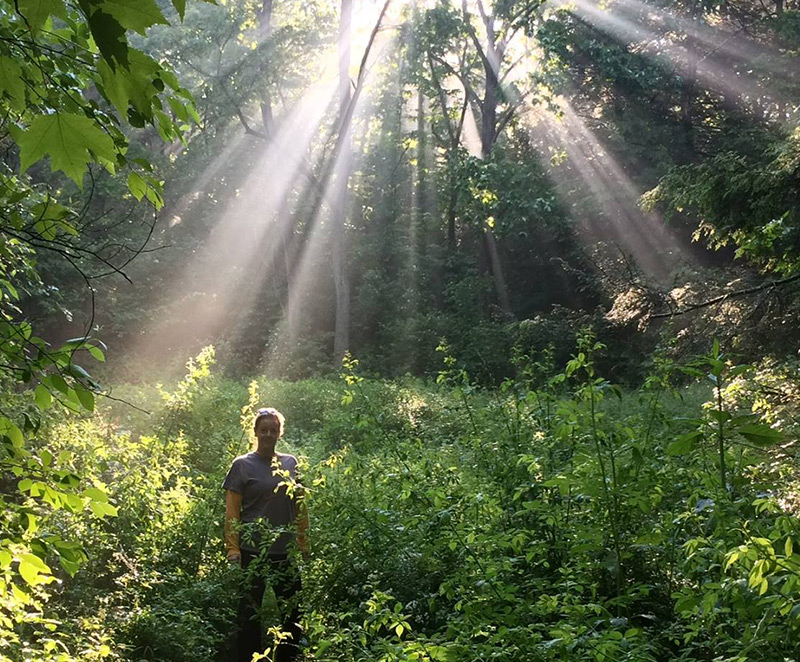
Spiritual Principles
SRC events evoke spirituality and mindfulness as a broad concept. There are conversations around the 12 steps, connecting with nature, mindfulness, and meditation exercises. Our participants feel connected to the world, comfort in their own skin, and become accustomed to senses that were numbed by the use of drugs and alcohol. We encourage gratitude, forgiveness, and purpose.
While the spiritual self is not always linked to religion, it is more than relevant to explore the revered place that nature has been given in so many of the world’s religions. Christianity tells the story of a paradise on Earth, rightly situated in the beauty of a garden, and documents the efforts of Noah as he’s commanded by God to save two of every species on the planet. Buddhism teaches that all life is sacred. Muslims believe that Nature was given to humans as a gift from Allah. Indigenous cultures all over the world have celebrated the existence of Nature as their “mother”. Those who aren’t religious have felt the great impact Nature has on the human spirit.
The ancient practice of mindfulness may be a powerful tool in fighting the modern-day epidemic of opioid addiction, new research suggests. In a series of studies, an eight-week course in mindfulness techniques appeared to loosen the grip of addiction in people who had been taking prescription painkillers for years and experienced powerful cravings for the drugs. The brains of subjects who got mindfulness training also evinced a renewal of pleasure in people, places and things that typically falls away as addiction takes hold. The brain activity of those who attended group sessions showed no evidence of having recaptured a sense of joy in life’s positive offerings.
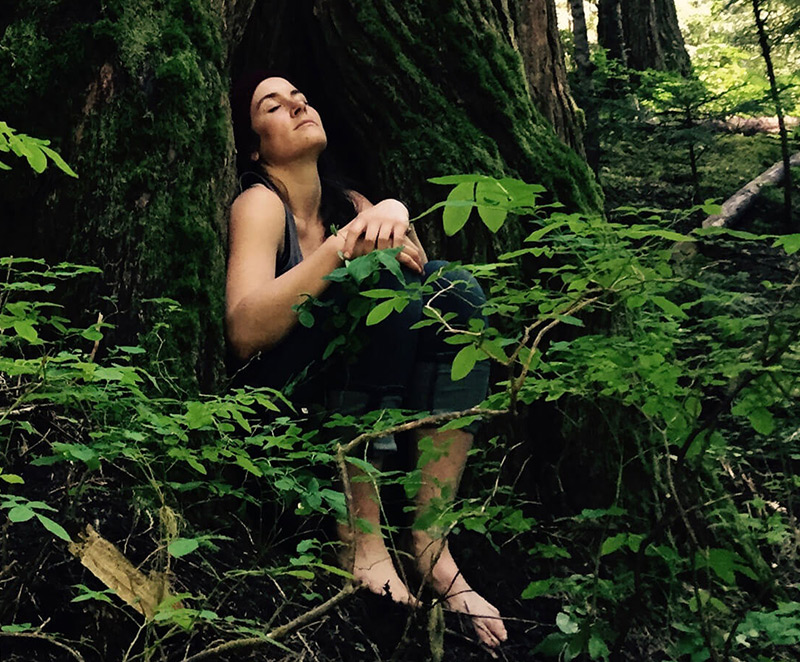
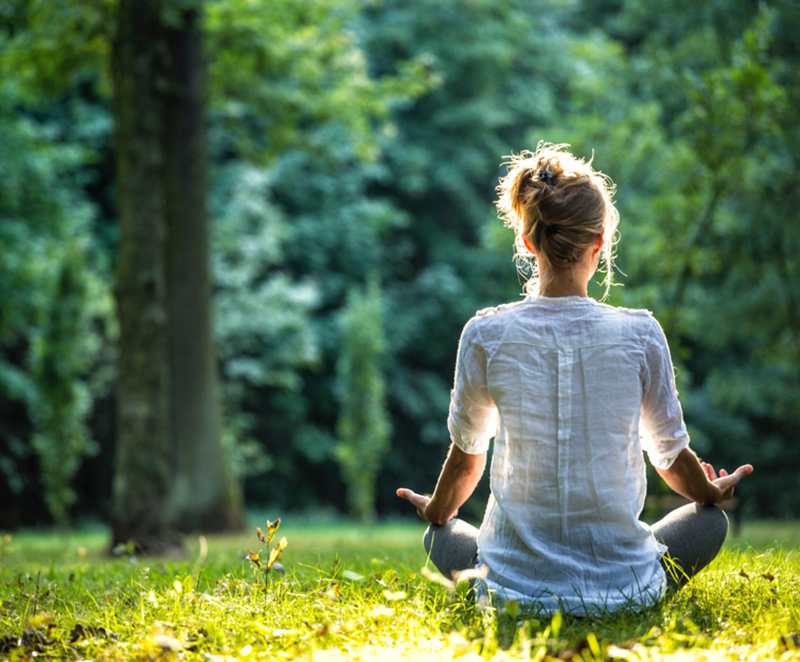
Yoga of 12-Step Recovery was created as a holistic model to address the physical, mental and spiritual dis-ease of addiction. Informed by the latest research in neuroscience and trauma healing, Y12SR “connects the dots” by combining the somatic approach of yoga with the cognitive approach of the 12-step recovery model – the most well-known addiction recovery program in the world, with millions of active practitioners.
Service Opportunities
SRC provides a number of ways for our participants to volunteer.
- Welcoming and encouraging a newcomer or peers
- Event planning and logistics
- Committee Participation
- Community Events
- Environmental and Conservation Initiatives
Exactly how volunteering helps brain health remains to be seen, although it’s been suggested that the social element of helping others, along with the stimulation of learning new things, could be factors. It’s also quite possible that the brain benefits stem, at least in part, from other body wide benefits that volunteering offers. Volunteering can lower your risk of depression and anxiety and even boost your psychological well-being.
Volunteering to help others can even lead to a so-called “helper’s high,” which may occur because doing good releases feel-good hormones like oxytocin in your body while lowering levels of stress hormones like cortisol. When researchers tested the buffering role of daily volunteer work on stress levels, it was found that salivary cortisol levels were lower on days when participants volunteered compared to days they did not, offering legitimate stress-buffering effects. Researchers wrote in Social Science & Medicine: “Our findings are suggestive of a unique, but unobserved, neurobiological mechanism underlying the link between volunteering and better health. Volunteer programs designed to help others in need may be considered as an intervention strategy for individuals living under stressful conditions.”
Sync Up
Please contact us to sign up for event announcements, ways to get involved, or share your recovery event. We will get back to you as quickly as possible.
